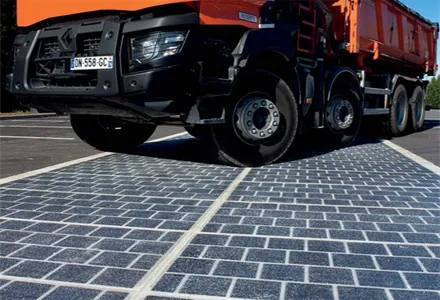Norway's capital Oslo has the highest percentage of new electric vehicles (EVs) on the road than any other city in the world.
February 29, 2012
Read time: 2 mins
Norway's capital Oslo has the highest percentage of new electric vehicles (EVs) on the road than any other city in the world. New data reveals that all kinds of EVs can be found on Norwegian roads, and especially in the area of Oslo. Over 4,000 silent and clean vehicles are already in use, and the number is climbing fast as new models come on the market. Non-fiscal incentives available in the country seem to be what wins over consumers, who have opted for models ranging from the locally-produced Buddy to the Roadster Tesla.
The news is of interest given that Norway is a major oil producer. However the Norwegian Government has been playing a key role in the creation of this EV market. Policies, incentives and consumer information have all helped play a role in making EVs attractive to Norwegian customers, even though this technology is at a comparatively early stage of development. A comprehensive fiscal incentive scheme has been set up for the purchase and use of electric cars. Both financial and non-financial incentives have been launched. Under this scheme EVs are exempt from non-recurring vehicle fees (such as registration tax), exempt from sales tax, VAT, annual road tax, annual vehicle tax, exempt from taxation for company car benefit tax, exempt from congestion charge (in Oslo) and exempt from import duty.
Other incentives include free parking in public parking areas, free electricity to charge EVs, free use of bus and taxi lanes (since 2003) and free use of toll roads. Initial EV consumer feedback indicates that the time saved thanks to the above-listed non-financial incentives seem to have the greatest impact on consumer behaviour towards EV acceptance and purchase. Moreover, 500 public charging stations have been installed to charge about 1,000 EVs in the greater Oslo area, while the installation of public charging infrastructure at national-level is in progress.
3055 Mitsubishi's iMieV is now the most popular compact car in Norway and this includes conventional internal combustion engine models. The firm believes it will sell 1,000 units this year, making it the most sold EV brand in Norway.
The news is of interest given that Norway is a major oil producer. However the Norwegian Government has been playing a key role in the creation of this EV market. Policies, incentives and consumer information have all helped play a role in making EVs attractive to Norwegian customers, even though this technology is at a comparatively early stage of development. A comprehensive fiscal incentive scheme has been set up for the purchase and use of electric cars. Both financial and non-financial incentives have been launched. Under this scheme EVs are exempt from non-recurring vehicle fees (such as registration tax), exempt from sales tax, VAT, annual road tax, annual vehicle tax, exempt from taxation for company car benefit tax, exempt from congestion charge (in Oslo) and exempt from import duty.
Other incentives include free parking in public parking areas, free electricity to charge EVs, free use of bus and taxi lanes (since 2003) and free use of toll roads. Initial EV consumer feedback indicates that the time saved thanks to the above-listed non-financial incentives seem to have the greatest impact on consumer behaviour towards EV acceptance and purchase. Moreover, 500 public charging stations have been installed to charge about 1,000 EVs in the greater Oslo area, while the installation of public charging infrastructure at national-level is in progress.








